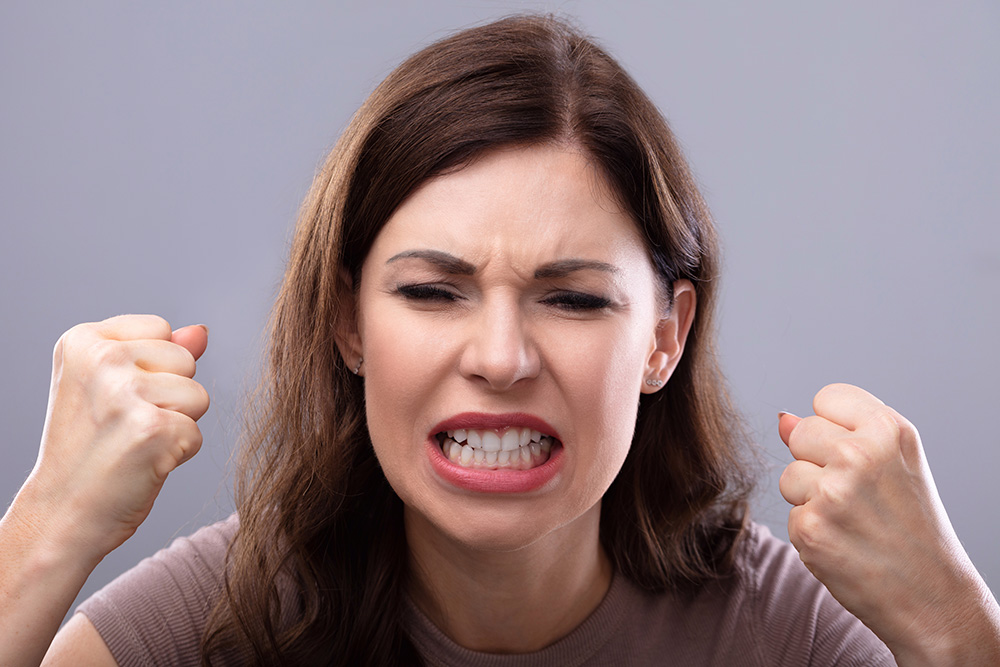
All About Teeth Clenching and Grinding
During these unprecedented times of COVID 19, people, on average, are experiencing a higher prevalence of stress and anxiety. Stress and anxiety may be caused by social isolation, inability to see friends and family, loss of a loved one or job, or financial hardship. Stress and anxiety may present in many different ways, including headaches, problems sleeping, upset stomach, chest pain, elevated blood pressure and even teeth clenching and grinding.
Teeth clenching and grinding are both considered involuntary movement disorders. They can either happen while awake or asleep and are an unconscious habit. Clenching is when the upper and lower jaw bites together with force, and grinding is when there is also a movement of the upper and lower teeth against each other with force. Teeth grinding is very common in children and is usually grown out of with age. The medical term for teeth clenching is “bruxism.”
What are the Signs & Symptoms?
Typically, the signs and symptoms of teeth clenching and grinding include, but are not limited to, a sore jaw that can sometimes feel like an earache, sore muscles in the cheeks and neck, headaches, sleep disruption, tooth pain or sensitivity, clicking or popping in the jaw joint, lockjaw and flattered or worn surfaces of the teeth. Occasionally, there will be no signs or symptoms associated with teeth clenching or grinding, primarily if it only occurs infrequently.
What is the Treatment?
Although it is difficult, if not impossible, to prevent teeth clenching and grinding, there are treatment options to prevent the signs and symptoms associated with it. There is no treatment recommended in children who grind their teeth, as they will usually grow out of the habit. For adults, there are several options for treatment, which most often involve the use of a nightguard. A night guard is a sturdy plastic tooth covering used to alleviate stress on the teeth and jaw. Nightguards can be fabricated in several different forms, such as with clasps or no clasps, with a bite pad or no bite pad. Other options to correct teeth clenching and grinding are correcting tooth alignment, such as the use of braces, Botox injections in the muscles around the jaw, stress and anxiety management and muscle relaxant medications.
If you think you may be clenching or grinding your teeth, know that this is a prevalent habit, and you are not alone. Especially during these unprecedented times, many people are dealing with more stress and anxiety. It is essential to seek treatment to prevent tooth wear. If you have any questions about teeth clenching and grinding, we are happy to see you and encourage you to call us today to schedule an appointment.
